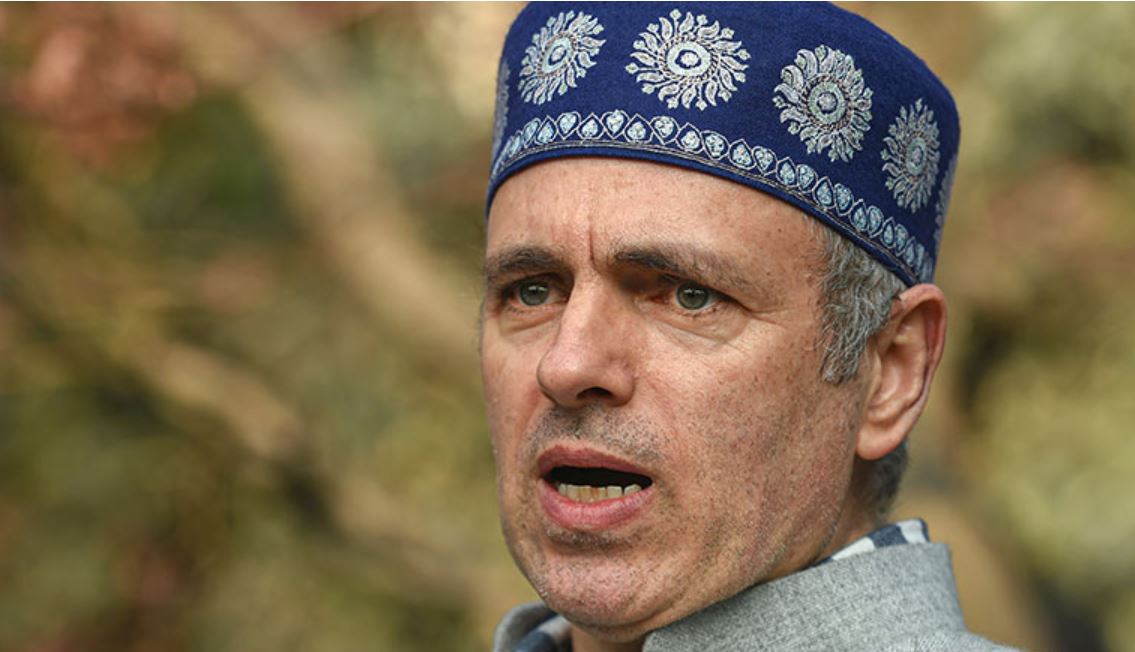
The recent elections in Indian occupied Jammu and Kashmir (IoJK) have again exposed the puppet like role of some local politicians, especially the National Conference (NC) leader, Omar Abdullah. Questions about the authenticity of the electoral process and the true motives of the elections have been raised after his clear and conflicting statements on Article 370—the provision that gives special autonomy to Jammu and Kashmir. The change in Abdullah’s stance from a pledge to restore the region’s special status, which he took on the campaign trail, to now ruling it out as ‘foolish,’ proves he sold the people of Kashmir trust and right to exist.
Omar Abdullah’s National Conference ran an aggressive election campaign centered on the promise to restore Article 370. The party’s manifesto emphasized reinstating Kashmir’s autonomy and reversing the Indian government’s August 2019 decision to revoke the region’s special status. This pledge resonated strongly with the Kashmiri people, who have long felt marginalized under Indian rule. Throughout the campaign, Abdullah and his party consistently highlighted the injustices faced by Kashmiris under the Modi government, drawing attention to its efforts to suppress the region’s distinct identity.But after the elections ended and Abdullah’s party won, the rhetoric took a complete 180-degree turn. Suddenly, Abdullah had become more conciliatory, having previously criticized the Indian government for its heavy-handed approach in Kashmir. Abdullah has even gone so far as to praise Indian Prime Minister Narendra Modi, calling him an ‘honest man’ and saying he has no doubt that he would not break his promises to the people of Kashmir. It is a shocking statement given that Modi’s government was the one that abrogated Article 370 in 2019, an act that many in Kashmir consider the final nail in the coffin for the region’s autonomy. This backtracking has not only raised eyebrows but also confirmed suspicions that the elections were nothing more than a sham. Abdullah’s volte face is seen by critics as part of a wider political game in which local politicians like him are pawns in the hands of the Indian government to legitimise its rule over the region.
For decades, India has hailed elections in Kashmir as a sign of normalcy and progress. But elections in these countries have consistently been marred by allegations of vote rigging, low turnout, and widespread population disillusionment. There were no exceptions to the most recent elections. In some areas of the region, voter turnout reportedly was as low as 8%, a sign that people didn’t have faith in the system. However, the Indian government has continued to tout these elections as a triumph of democracy, while ignoring the fact that the occupation and disenfranchisement that continue to plague the region.
The National Conference, led by Abdullah, has been accused for years of being a puppet of the Indian government. The party’s rhetoric of resistance notwithstanding, it has always been in sync with New Delhi’s interests, and at the expense of the Kashmiri people. This perception has only been reinforced by the most recent elections. Abdullah has now indicated that his party will work with the BJP government for the ‘welfare’ of Kashmir instead of standing firm on the promise of restoring Article 370. This is a thinly veiled admission that the National Conference is prepared to work with the very forces that have subjugated the region and taken away its autonomy.
This is troubling on a broader scale. Omar Abdullah has alienated the Kashmiri people further from political process by participating in these elections and reneging on his promises. Many Kashmiris already regard the electoral process as a farce, a way for India to legitimise its occupation of the region. This belief has only been reinforced by Abdullah’s actions. Instead of being a voice of resistance, he has become just another Kashmiri politician who has decided to put his own political career first over the will of people.
Abdullah’s statement that Kashmiris should trust Modi and Home Minister Amit Shah’s ‘vision for Kashmir’ also is deeply worrying. In recent memory Modi’s government has led to some of the most draconian policies in Kashmir, including the abrogation of Article 370, months long lockdown in Kashmir and fighting dissent by force of arms. To ask Kashmiris to trust this government is to ignore the number of human rights violations and abuses that have taken place under its watch.
The case of Kashmir, the cause of conflict which has been going on more than seven decades, is one of the most protracted territorial disputes on the planet today. The region has been a violent and unrest flashpoint since India and Pakistan split in 1947. The conflict has killed tens of thousands of people over the years and millions have been displaced. Since 1989, more than 95,000 Kashmiris have been killed, thousands have been subjected to enforced disappearances and extrajudicial killings, according to recent estimates. These staggering figures may not have stopped world leaders and diplomats but it definitely did not stop the international community from turning a blind eye to the suffering of Kashmiri people.
Kashmiri people continue to face those challenges, as starkly illustrated by recent elections and subsequent actions of politicians like Omar Abdullah. However, the Indian government is still touting these elections as a sign of progress and normalcy, while the reality on the ground is quite different. Kashmiris are under the heel of a brutal occupation, with little hope of meaningful political change. Until politicians like Abdullah are willing to be puppets of the Indian state, the dream of an independent, self determining Kashmir will remain a dream. Kashmir’s people have suffered for decades and deserve better than this. They deserve leaders who will actually fight for their rights and resist those who wish to silence them. However, so long as the current political order stands, it seems unlikely that this will occur. Far from a step forward, these recent elections have done little to dissuade the despair and hopelessness many Kashmiris feel.
